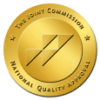Struggling with substance dependence can feel overwhelming, leaving you unsure of where to turn. Rapid detox in Nashville offers a glimmer of hope for those seeking a fresh start. It’s a crucial step toward reclaiming your life and breaking free from the chains of addiction.
At Tennessee Detox Center, our Tennessee rapid detox facility offers a compassionate team dedicated to guiding you through the withdrawal process. Our specialized upscale residential treatment programs and detox services minimize withdrawal symptoms and provide a safe, supportive environment. With personalized care, we focus on your unique needs to ensure a smoother transition into recovery.

What Is Rapid Detox?
Rapid detox offers a swift approach to overcoming substance dependence. It focuses on minimizing withdrawal symptoms while expediting the detoxification process in a controlled environment. Rapid detox involves a medically supervised procedure that cleanses the body of harmful substances quickly and effectively. This method utilizes medications to facilitate withdrawal symptoms, allowing you to experience a faster detoxification process.
How Long Does Rapid Detox Take?
Unlike traditional detox methods, which can take several days or even weeks, rapid detox typically finishes in about 24 to 72 hours. This depends on the substance as well. For instance, rapid opiate detox takes a total of 2-3 days, with medication used to bring on withdrawal symptoms in 4-5 hours.
Rapid detox for opioids also has similar timeframes, even if regular opioid detox takes as much as 5 days. In short, rapid detox methods speed up the process of withdrawal, which can be life-saving to those wanting to get clean quickly.
At, Tennessee Detox Center provides rapid detox Tennessee residents can depend on. We have experienced medical professionals who provide personalized care during rapid detox. Our luxury drug rehab prioritizes your safety and comfort, ensuring that medical monitoring and support are available at all times. Combined with amenities like luxury rooms, flat screen TVs, even movie and game rooms, we leave no stone unturned to ensure your stay is as comfortable and relaxing as possible.
How Does Rapid Detox in Tennessee Work?
-
Sedation: The procedure begins by sedating you with general anesthesia, inducing a medically controlled coma. This sedation typically occurs in a hospital or a specialized medical facility.
-
Respiratory Support: While you’re under anesthesia, a tube is placed in your lungs through the windpipe. A ventilator ensures you breathe safely throughout the procedure.
-
Medication Administration: Medications like opioid antagonists (e.g., naltrexone, naloxone) are used during rapid opioid detoxification to block opioid receptors in your brain. This action prompts an accelerated withdrawal from the opioids.
-
Duration: Expect the sedation to last between four and six hours, though some cases may extend beyond this timeframe. During this time, your body will work to detoxify itself and remove the opioids from your system.
-
Aftercare: Once the procedure is complete, you’ll be monitored for several hours before being discharged. You will likely experience lingering withdrawal symptoms as your body adjusts to being opioid-free, but aftercare support can help you manage these symptoms and prevent relapse.
This rapid detox process is designed to provide an effective and efficient means to rid your body of harmful substances, all in a secure environment led by expert professionals at the Tennessee Detox Center. It’s important to remember, however, that rapid opioid detoxification is just one step in long-term recovery.
To maintain sobriety, it’s important to have a comprehensive treatment plan that may include therapy, support groups, and ongoing medical care. At Tennessee Detox Center, we offer luxury inpatient rehab to help you get started on the long road to sobriety. We also offer outpatient programs including IOP, PHP, and regular outpatient care. No matter how severe your opioid addiction may be, it’s never too late to seek help and start the healing process.
Your journey toward healing begins today.
What Are the Benefits of Rapid Detox in Tennessee?

Minimized Withdrawal Symptoms
Rapid detox minimizes withdrawal symptoms by sedating patients with general anesthesia during the initial withdrawal phase. This sedation significantly reduces physical discomfort, facilitating a smoother transition away from opiates. Experts agree that this method allows patients to undergo detox without the severe pain that typically accompanies withdrawal, making it more tolerable and effective.

Efficiency and Time-Saving
Rapid detox efficiently compresses the detox period to as little as 24 to 72 hours. This time-saving feature allows patients to transition quickly into essential follow-up therapies and rehabilitation sessions, which play a critical role in long-term recovery success. By expediting the process, individuals regain their momentum and can focus on their overall healing without extended interruption.

Immediate Craving Control
Programs offering rapid detox may administer a Vivitrol shot immediately after the procedure, providing prompt relief from cravings. This control helps patients take significant steps toward overcoming addiction, reinforcing their commitment to recovery. The combination of detoxification and immediate craving management sets the stage for better outcomes in your recovery journey.
Is Rapid Detox Safe?
When it comes to rapid detox Tennessee residents should know it isn’t recommended for everyone. This procedure involves general anesthesia during initial withdrawal and administering high doses of opiate blockers like naltrexone. It’s important to know that this method does carry numerous health risks including:
- Severe withdrawal symptoms
- Dehydration
- Electrolyte imbalance
- Heart arrhythmias
- Kidney failure
- Seizures
If you’re considering rapid detox, you need to prioritize safety by choosing facilities like Tennessee Detox Center. Our luxury rehabilitation services always include medical monitoring, which is paramount during rapid detox. If you don’t qualify for rapid detox services, don’t worry. We also offer opiate and opioid detox, alcohol, heroin, and meth detox among other treatment options.
We believe the power of sobriety is within everyone. Our medical team will help you detox your body safely and effectively to give you the best chance at lasting recovery.
Does Substance Addiction Impact Tennessee ?
Tennessee faces a growing substance abuse crisis. According to the 2021–2022 National Survey on Drug Use and Health, approximately 11.9% of Tennesseans aged 12 and older reported using illicit drugs in the past month. Opioid use remains a significant concern across the state. In 2022, opioids were involved in 3,073 of the 3,826 drug overdose deaths in Tennessee, with synthetic opioids like fentanyl accounting for the majority of these fatalities. The rise in addiction rates correlates with increased stressors such as economic instability, mental health challenges, and limited access to care in rural communities. These factors have led many residents to seek effective treatment solutions, making options like medical detox and comprehensive recovery programs increasingly critical throughout Tennessee.
Choosing Tennessee Detox Center offers access to confidential and exclusive treatment options designed to address these issues. With a dedicated team and a focus on rapid detox, you receive the care you need in a safe environment. Our rehab’s commitment to minimizing withdrawal symptoms during this critical recovery phase enhances the success rate of overcoming addiction.
What Are the Effects of Addiction on Health and Life?
Addiction significantly impacts physical and mental health, affecting all aspects of life. Understanding these effects can help you recognize the urgency of seeking treatment at facilities like the Tennessee Detox Center.
- Physical Consequences of Long-Term Substance Abuse
- Mental Health Implications
- Social Impact of Addiction
Physical Consequences of Long-Term Substance Abuse
- Organ Damage: Prolonged substance abuse leads to damage in vital organs such as the liver, kidneys, and heart. For instance, excessive alcohol consumption can result in liver cirrhosis.
- Infectious Diseases: Sharing needles during drug use increases the risk of contracting infectious diseases like HIV and hepatitis.
- Cardiovascular Issues: Substance abuse can heighten blood pressure and cause irregular heart rhythms, leading to serious cardiovascular complications.
- Respiratory Problems: Opioids and other substances can depress respiratory function, causing chronic respiratory conditions or fatal overdoses.
- Weight Fluctuations: Addiction often results in significant weight loss or gain due to altered metabolism and changes in eating habits.
Mental Health Implications
- Anxiety and Depression: Addiction frequently co-occurs with mental health disorders, exacerbating feelings of anxiety and depression.
- Cognitive Decline: Prolonged substance abuse can impair cognitive functions, impacting memory, decision-making, and problem-solving skills.
- Behavioral Changes: Addiction leads to significant behavioral changes, often resulting in loss of interest in previously loved activities and strained relationships.
- Increased Risk of Suicide: The combination of addiction and mental health issues significantly raises the risk of suicidal thoughts and behaviors.
Social Impact of Addiction
- Relationship Strain: Addiction adversely affects personal relationships with family, friends, and colleagues, often resulting in isolation.
- Employment Challenges: Substance abuse often leads to diminished job performance, absenteeism, or loss of employment altogether.
- Legal Issues: Engaging in illegal activities to support addiction creates potential legal trouble, with long-lasting repercussions on your life.
- Financial Strain: The cost of maintaining an addiction creates significant financial burdens, influencing overall stability and well-being.
Why Choose Tennessee Detox Center for Rapid Detox in Tennessee?

Choosing the Tennessee Detox Center for rapid detox in Tennessee offers you a safe and effective path toward recovery. Our facility prioritizes compassionate care and employs the latest medical practices to help you overcome addiction.
Experienced Medical Team Specializing in Rapid Detox Tennessee
- Detox Center features a team of licensed medical professionals with extensive experience in addiction treatment.
- Our staff provides personalized care, ensuring that each patient’s unique needs are met throughout the detox process.
- Our team includes doctors, nurses, and addiction specialists who monitor your health and safety, addressing any complications that may arise.
- This focus on expertise means you receive not only physical care but also emotional support during this challenging time. Our medical professionals administer medications that alleviate withdrawal symptoms, promoting a more comfortable experience overall.
By selecting the Tennessee Detox Center, you benefit from a dedicated medical team that emphasizes safety and effectiveness during your recovery journey. Our private luxury rehab also offers incredible accommodations like private catered meals, weekly outings, yoga and other experiential therapies, and more, to make your recovery journey as comfortable and enjoyable as possible.
The facility itself is clean, well-maintained, and equipped with all the necessary amenities to provide a serene and supportive environment.
What truly stands out is the personalized approach to care. The team developed a treatment plan tailored to my specific needs, incorporating both medical and holistic therapies. This comprehensive approach not only addressed my physical withdrawal symptoms but also supported my mental and emotional well-being.
The counselors and therapists offer a range of therapies that helped me understand the root causes of my addiction and develop effective coping strategies. Group therapy sessions provided a safe space to share experiences and gain insights from others on similar journeys.
Overall, my experience with this medical detox program was life-changing. The compassionate and skilled staff, combined with the personalized treatment approach, provided me with the foundation I needed for a successful recovery. I highly recommend this facility to anyone seeking a safe and supportive environment for detox and recovery.
But it's the people who make this place truly special. The staff, they've been there, they understand the struggle. No judgment, just support, encouragement, and a genuine desire to help you heal. They treated me like an old friend, even though I was just visiting for my buddy.
They've got a whole range of therapies to help you on your journey – individual counseling, group sessions, and even a fitness center to get you moving again. It's not just about detox. It's about rebuilding your life from the ground up.
My friend, the owner, he's living proof that this place works. He poured his heart into creating a haven for those seeking recovery, and his passion shines through in every detail.
So, if you're ready to take that first step, this is the place. Trust me, they'll walk beside you every step of the way.
Experienced Medical Team Specializing in Rapid Detox
- The Tennessee Detox Center features a team of licensed medical professionals with extensive experience in addiction treatment.
- The staff provides personalized care, ensuring that each patient’s unique needs are met throughout the detox process.
- The team includes doctors, nurses, and addiction specialists who monitor your health and safety, addressing any complications that may arise.
- The focus on expertise means you receive not only physical care but also emotional support during this challenging time.
- The medical professionals administer medications that alleviate withdrawal symptoms, promoting a more comfortable experience overall.
- The center’s commitment to ongoing training equips the team with the latest knowledge and techniques in rapid detox methods.
By selecting the Tennessee Detox Center, you benefit from a dedicated medical team that emphasizes safety and effectiveness during your recovery journey.
Benefits of Rapid Detox in Tennessee
Rapid detox offers numerous benefits for individuals seeking recovery in Tennessee. This innovative approach enhances the detoxification process, ensuring a safer and more manageable journey toward sobriety.
Experience Rapid Detox in Tennessee with Tennessee Detox Center
Rapid detox in Tennessee can be a life-changing step toward a healthier, addiction-free future. At Tennessee Detox Center, you’ll find a compassionate team dedicated to providing the care and support you need to face the challenges of addiction with confidence. Their focus on safety, comfort, and effective treatment ensures a smoother and faster path to recovery.
Opting for rapid detox means addressing withdrawal symptoms quickly while laying the foundation for lasting transformation. You don’t have to face this journey alone—expert help is available to guide you every step of the way. Call us today at (629) 262-5675 and take the first step toward reclaiming your life. A brighter, healthier future awaits you!
Frequently Asked Questions
Rapid detox is a medical procedure designed to quickly remove harmful substances from the body, primarily opioids. It typically occurs within 24 to 72 hours under sedation, minimizing withdrawal symptoms through a controlled environment.
Rapid detox offers several benefits, including reduced withdrawal symptoms, expedited detoxification, and improved mental clarity. Patients often experience renewed energy, allowing for a smoother transition into rehabilitation.
Yes, rapid detox carries risks, particularly related to general anesthesia and high doses of medications. Potential complications can include dehydration, electrolyte imbalances, and severe withdrawal symptoms, emphasizing the importance of choosing a qualified facility.
Yes, rapid detox carries risks, particularly related to general anesthesia and high doses of medications. Potential complications can include dehydration, electrolyte imbalances, and severe withdrawal symptoms, emphasizing the importance of choosing a qualified facility.
Substance abuse in Nashville is alarming, with about 10.5% of adults reporting illicit drug use over the past year. Opioid-related deaths exceed 300 annually, highlighting a significant public health crisis that requires effective treatment solutions.
While rapid detox is a crucial first step, it lays the foundation for long-term recovery. It prepares patients for ongoing therapy and support, aiming to address the root causes of addiction and promote overall well-being.
-
Addiction Group. (n.d.). Tennessee drug and alcohol statistics. Retrieved July 28, 2025, from https://www.addictiongroup.org/tennessee/drug-statistics/
-
Substance Abuse and Mental Health Services Administration (SAMHSA). (2023). 2023 ICCPUD state report: Underage drinking prevention – Tennessee. U.S. Department of Health and Human Services. Retrieved from https://library.samhsa.gov/sites/default/files/tennessee-iccpud-state-report-2023.pdf
-
Tennessee Alcoholic Beverage Commission. (2024). Report to prevent underage drinking, drunk driving, and other harmful uses of alcohol (PC 961). State of Tennessee. Retrieved from https://www.tn.gov/content/dam/tn/abc-documents/abc-documents/PC-961-2024-Report-to-Prevent-Underage-Drinking-Drunk-driving-and-Other-Harmful-Uses-of-Alcohol.pdf
-
National Institute on Alcohol Abuse and Alcoholism (NIAAA). (2012). Alcohol withdrawal syndrome. In S. C. Merrill & B. S. Frances (Eds.), The management of alcohol use disorders: A practical guide for clinicians (NIH Publication No. 12–5191). National Center for Biotechnology Information. Retrieved from https://www.ncbi.nlm.nih.gov/books/NBK64119/

Medically Reviewed By:
Dr. Vahid Osman, M.D.Board-Certified Psychiatrist and Addictionologist
Dr. Vahid Osman is a Board-Certified Psychiatrist and Addictionologist who has extensive experience in skillfully treating patients with mental illness, chemical dependency and developmental disorders. Dr. Osman has trained in Psychiatry in France and in Austin, Texas. Read more.
The Joint Commission – The Gold Seal of Approval® signifies that Tennessee Detox Center meets or exceeds rigorous performance standards in patient care, safety, and quality. It reflects a commitment to continuous improvement and clinical excellence.

LegitScript Certified – Confirms that Tennessee Detox Center operates in full compliance with laws and regulations, and meets high standards for transparency and accountability in addiction treatment marketing.
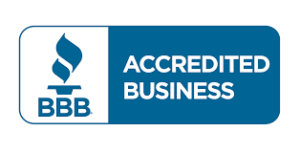
BBB Accredited – Demonstrates ethical business practices, commitment to customer satisfaction, and a trusted reputation within the community.
Psychology Today Verified – Indicates that Tennessee Detox Center is listed on Psychology Today, a trusted directory for verified mental health providers and treatment centers.
HIPAA Compliant – Ensures all patient health information (PHI) is protected and managed in accordance with strict federal privacy and data security standards.
ASAM Member – Tennessee Detox Center is a proud member of the American Society of Addiction Medicine (ASAM), reflecting a commitment to science-driven and evidence-based treatment standards.

Rutherford County Chamber of Commerce – Membership signifies active participation in the local community and support for regional growth and civic collaboration.

| Medically Reviewed By: Board-Certified Psychiatrist and Addictionologist |

| Clinically Reviewed By: Board Certified Clinical Social Worker |
Compassionate Rehab Services
Evidence-Based Treatment
Check Your Insurance Coverage
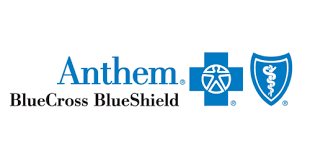

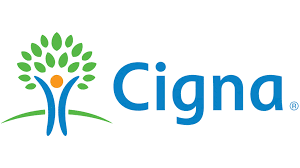


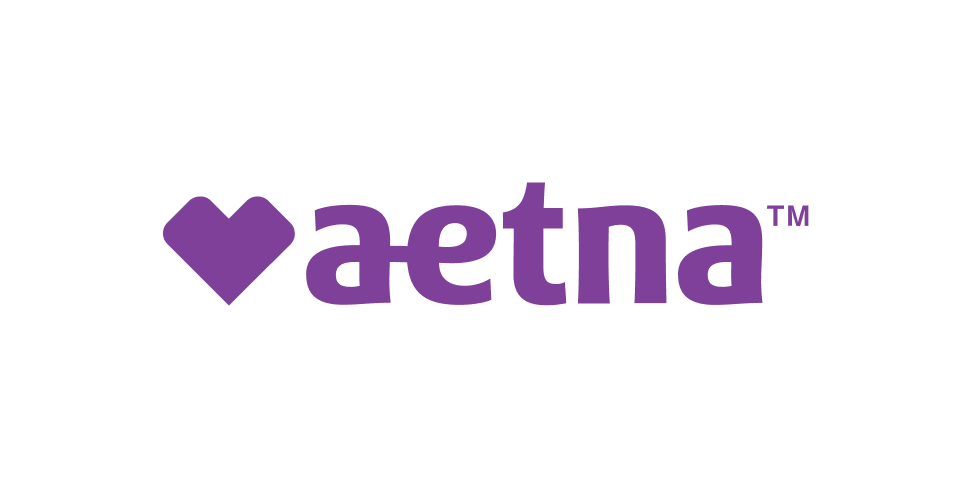
Your insurance may pay for all of your addiction treatment. Call for a confidential conversation with a treatment provider about your financial options.
Insurances We Accept
- Verify your Insurance
- BCBS TN
- AETNA
- Cigna
- Anthem of KY
- Optum
- UMR
- Multiplan
Get Family Support Now
Supporting Families Through Recovery
We understand addiction affects the whole family. Our comprehensive family program helps rebuild trust and restore relationships.
Weekly Family Therapy Sessions
Educational Workshops
Support Groups
Communication Skills Training
What Our Patients Say: Stories of Hope and Recovery
Hear directly from those who have walked the path to recovery. Our patients’ stories highlight the compassionate care, effective programs, and life-changing support they’ve experienced. Let their journeys inspire you as you take your first steps toward healing.
The facility itself is clean, well-maintained, and equipped with all the necessary amenities to provide a serene and supportive environment.
What truly stands out is the personalized approach to care. The team developed a treatment plan tailored to my specific needs, incorporating both medical and holistic therapies. This comprehensive approach not only addressed my physical withdrawal symptoms but also supported my mental and emotional well-being.
The counselors and therapists offer a range of therapies that helped me understand the root causes of my addiction and develop effective coping strategies. Group therapy sessions provided a safe space to share experiences and gain insights from others on similar journeys.
Overall, my experience with this medical detox program was life-changing. The compassionate and skilled staff, combined with the personalized treatment approach, provided me with the foundation I needed for a successful recovery. I highly recommend this facility to anyone seeking a safe and supportive environment for detox and recovery.
But it's the people who make this place truly special. The staff, they've been there, they understand the struggle. No judgment, just support, encouragement, and a genuine desire to help you heal. They treated me like an old friend, even though I was just visiting for my buddy.
They've got a whole range of therapies to help you on your journey – individual counseling, group sessions, and even a fitness center to get you moving again. It's not just about detox. It's about rebuilding your life from the ground up.
My friend, the owner, he's living proof that this place works. He poured his heart into creating a haven for those seeking recovery, and his passion shines through in every detail.
So, if you're ready to take that first step, this is the place. Trust me, they'll walk beside you every step of the way.
Elevating Recovery:
Unmatched Amenities & Individualized Support

State-Of-The-Art Facility

Luxury Bedrooms

Dedicated Private Chef

Fun and Games

Clinician & Medical Owned & Operated

Family Therapy Sessions

Weekly Outings

Twice‑Weekly Individual Therapy

Small Groups, Big Recovery
Get Family Support Now
Supporting Families Through Recovery
We understand addiction affects the whole family. Our comprehensive family program helps rebuild trust and restore relationships.
Weekly Family Therapy Sessions
Educational Workshops
Support Groups
Communication Skills Training
Get Family Support Now















